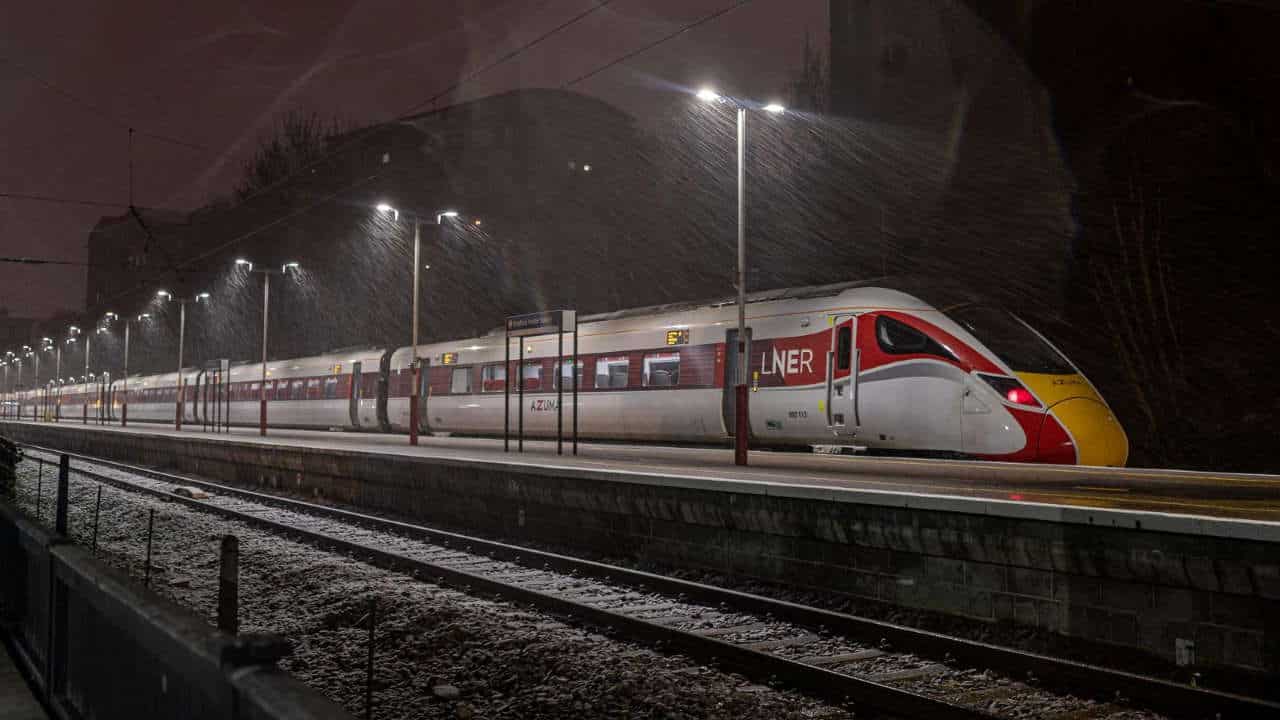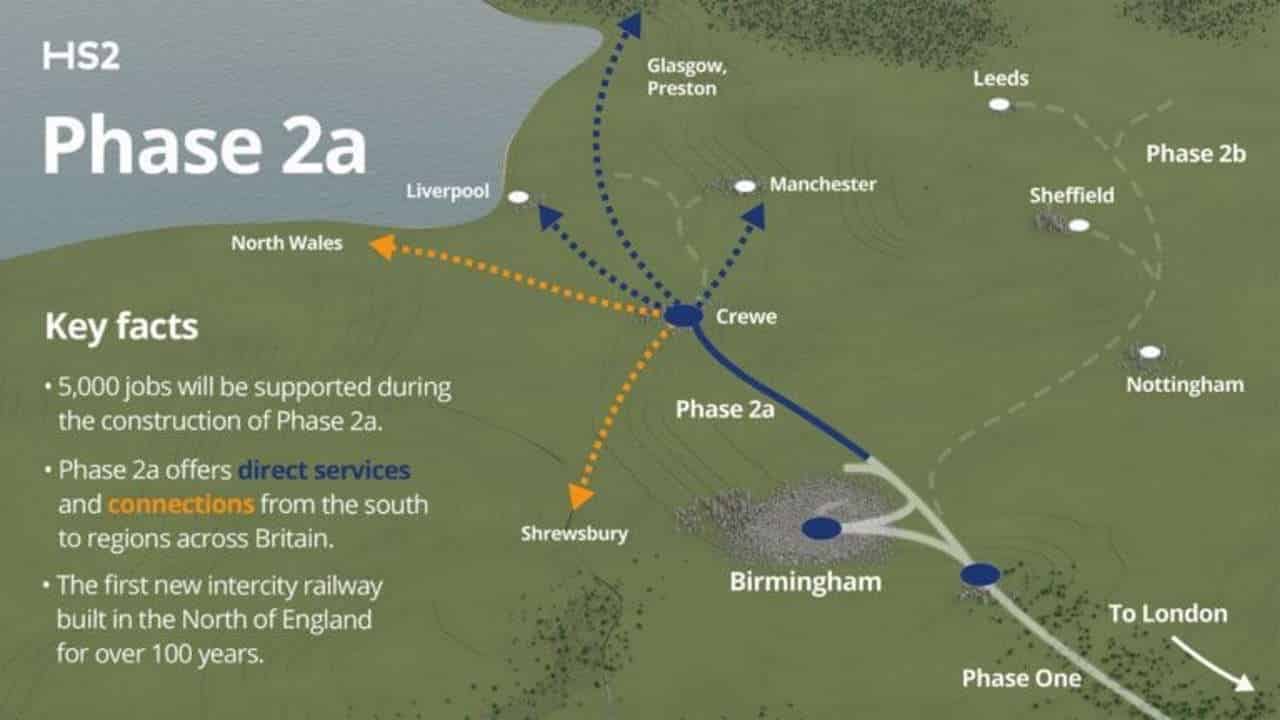Department for Transport agrees to reconsider Bradford’s exclusion …
The Department for Transport[1] has agreed to reconsider its decision to exclude Bradford[2] from improvements under Northern Powerhouse Rail and HS2[3].
The DfT's pledge comes two years after the 2021 Integrated Rail Plan (IRP)[4] and a year after the Transport Committee of MPs' criticism of the Plan.
The Committee has welcomed the government's agreement to follow its recommendations by revisiting the decision to not include Bradford[5] in plans to develop rail networks in the North and Midlands of England, which is included in the DfT's formal response to the cross-party Committee's 2022 report on the IRP.
 LNER Azuma at Bradford // Credit: LNER
LNER Azuma at Bradford // Credit: LNER
The 2021 IRP covered northern sections of HS2[6] and Northern Powerhouse Rail (NPR), setting out proposals to electrify lines and increase capacity on routes from Liverpool to Hull and Newcastle via Manchester, Sheffield and Leeds, and upgrades to Leeds[7] and Manchester Piccadilly stations.
However, it did not include plans for a new line through, and station in, Bradford, attracting controversy.
The DfT has promised an updated business case for the project, which is expected later this year and which will include “updated analysis on a range of different network options” and promises “re-assessment of the evidence for better connecting Bradford and the case for [building] a new station will now form part of the NPR development programme and the HS2 to Leeds Study.”
The government has also stated that it is about to publish the terms of reference for a study on how best to take HS2 trains to Leeds. The Transport Committee had called for this study “urgently” in its July 2022 report.
However, the DfT expects the study to take eighteen months to complete.
After the Committee criticised the government for shortening the Eastern leg of HS2 Phase 2b to terminate at East Midlands Parkway without first carrying out an updated benefit-cost ratio analysis, it will now do so.
 Credit: Transport for the North
Credit: Transport for the North
The Committee of MPs took the view that the DfT had not properly tested alternatives to its proposals, nor had it analysed wider economic ‘levelling up' impacts of various options for NPR. The result was that decision makers could not compare value for money between those options. The government now says that it will carry out these studies as part of its Leeds to HS2 Study, and in the course of producing the new NPR business case.
The Committee of MPs had heard from expert witnesses and shared their concerns that projections for shorter journey times from NPR might turn out to be unduly optimistic. The government has agreed to take new, “refined” advice on journey times as it carries out further work on business cases.
The Committee also felt that DfT “fixation” on reducing journey times had overshadowed the issue of track capacity, leading it to opt for upgrades over building new lines, which would limit benefits. The government has not responded to this concern.
The DfT has also admitted that it has still not come up with an alternative to the ‘Golborne Link', a section of HS2 that would have connected Crewe with the West Coast Mainline to Scotland, which the government dropped from HS2 legislation in June 2022. The Committee asked for an alternative to be announced by March 2023. The DfT is arguing that it needs more time to identify an alternative but gives no timescale and stresses that no additional funding is available.
The Transport Committee called on the DfT to produce a new strategy for rail freight, to which the government responded thar it “fully recognises the advantages to the economy, environment[8] and society of shifting freight from road to rail”. DfT said that later this year, it will use a team within Great British Rail to “set a long-term rail freight growth target which is intended to provide confidence in the industry well into the future”.
MPs also recommended that the DfT produce a detailed mitigation strategy to limit disruption to local communities during construction. The Department said that it “accepts the rationale of the recommendation”.
Transport Committee Chair Iain Stewart MP said: “The main arguments of the Committee's report have been vindicated as the Government has accepted that more work is needed on key elements of the Integrated Rail Plan[9] – its cost-benefit ratios, contributions to levelling up, and projections on shortening journey times. We welcome those elements of the response, even though we regret this work was not completed before the major strategic decisions in the IRP were taken.
“We are particularly glad to see DfT taking an open-minded approach to building a new station at Bradford – sometimes dubbed the most badly connected city in the UK – and doing more analysis of a range of different network options.
“As we emphasised in our report, it is vital that the way this £96 billion investment is used is based on the most robust evidence. What we will be looking for now is a willingness for the Government to change course if that is what this renewed evidence base suggests.
“It would be remiss to not point out that the Committee called on DfT crack on with these work streams months ago. The HS2 to Leeds study is now expected to take 18 months, and we are still waiting for an alternative to the Golborne Link to emerge. By then one can only wonder if all of this will still be achievable within the £96bn spending envelope, or whether inflation and rising interest rates will continue to cut this budget down in real terms.”
References
- ^ Posts tagged with Department for Transport (www.railadvent.co.uk)
- ^ Posts tagged with Bradford (www.railadvent.co.uk)
- ^ Posts tagged with HS2 (www.railadvent.co.uk)
- ^ 2021 Integrated Rail Plan (IRP) (www.railadvent.co.uk)
- ^ Posts tagged with Bradford (www.railadvent.co.uk)
- ^ Posts tagged with HS2 (www.railadvent.co.uk)
- ^ upgrades to Leeds (www.railadvent.co.uk)
- ^ Posts tagged with Environment (www.railadvent.co.uk)
- ^ Posts tagged with Integrated Rail Plan (www.railadvent.co.uk)